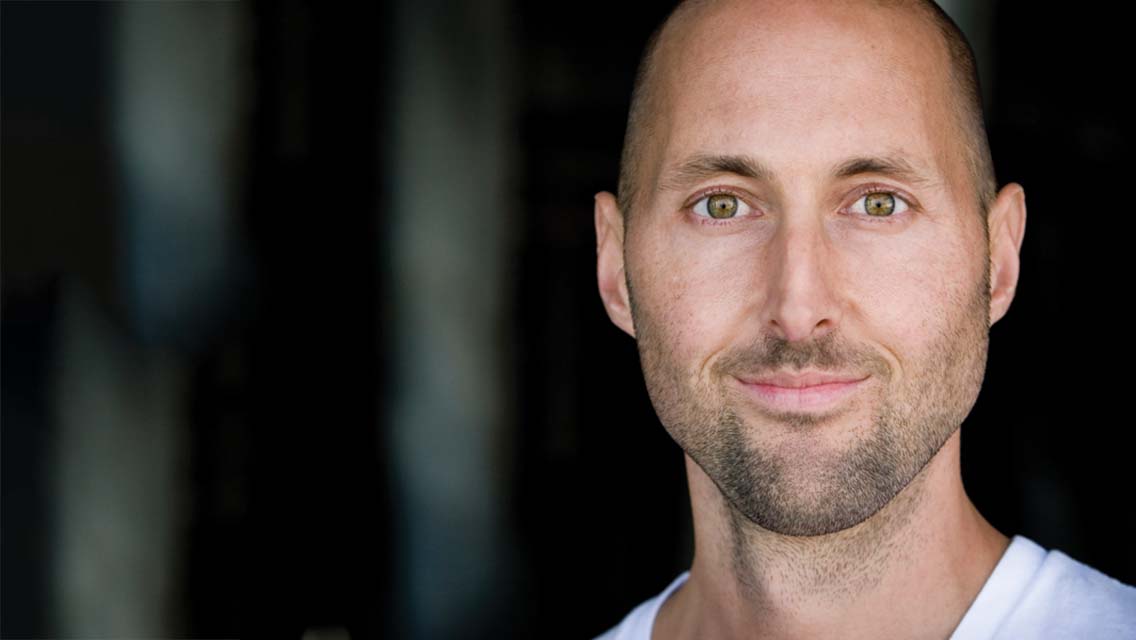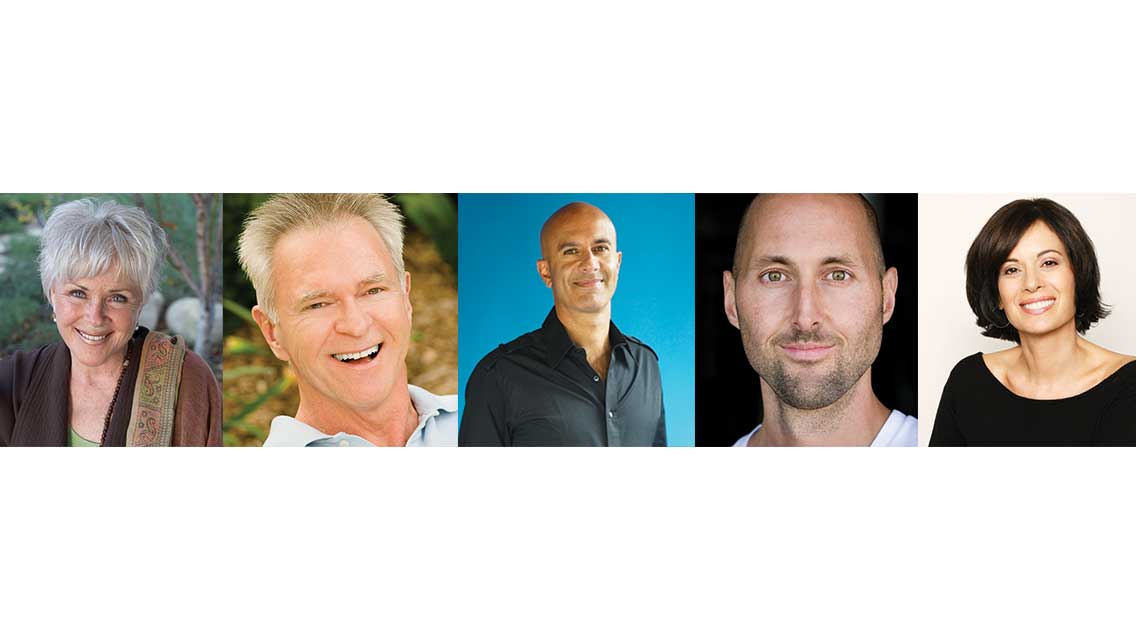Explore the Greek roots of the word “philosopher,” and you’ll find that it translates as “lover of wisdom.” The term applies well to Brian Johnson, a successful Web entrepreneur who spent the last two years distilling the “Big Ideas” from some of the world’s great philosophy and personal-development books and applying them to his own life.
After selling his last business, Johnson decided to invest himself full time in this effort. Eager to share what he was learning, he began emailing his notes to friends. Before long, he expanded the effort into PhilosophersNotes.com, a Web site that offers his summaries in three easy-to-digest formats: six-page PDFs, 20-minute MP3s and 10-minute “PhilosophersNotes TV” video episodes.
Today, Johnson has thousands of subscribers from around the world. “Philosophy was never meant to be an esoteric thing,” he says. “It’s really about the art of living well. Today, we’re more in need of deep wisdom than ever, but we are so busy that it’s really difficult for people to read as much as they’d like. What I wanted to do was make some of the world’s great wisdom available in a format busy people could use to help transform their lives.”
We talked to Johnson about the role wisdom plays in personal transformation, and about the concept of the “hero’s journey” — an idea that figures heavily in much of Johnson’s work.
The original slogan for PhilosophersNotes was “Concentrated Wisdom for Your Hero’s Journey.” What is a hero’s journey and why is it relevant in today’s world?
The term “hero’s journey” comes from one of my favorite teachers, Joseph Campbell, and his study of mythology. In his book The Hero with a Thousand Faces, Campbell points out that all the great cultures and traditions have their own heroes’ stories. Usually, these are stories of great quests that the protagonist must undertake in the pursuit of a higher purpose.
Campbell’s observation was that, like these mythic heroes, each of us has a path we need to discover — our own destiny, dharma or personal quest.
This brings us to another of Campbell’s important ideas, the concept of following your bliss. One of the driving forces of a hero’s journey is discovering what we’re most passionate about, taking our leap into the unknown.
Where we feel enthusiasm and have a heartfelt sense of what we’re here to do, that’s our bliss. And that’s where the story of most heroes’ journeys begins — just as we are entering the forest of the unknown, leaving behind our tribes and finding our own way.
Sounds intense. How does a normal person prepare for something like that?
The reality of a hero’s journey is intense. And at the same time, it’s just the nature of life. When you take a path never taken before, you have to learn to trust yourself. You fight demons and dragons. You get wounded. You face hardship and doubt. You have to face your conditioning and the potential of failure. And you keep on learning and growing stronger along the way.
For me, that’s where having a grasp of philosophy and wisdom literature becomes incredibly helpful. People have been dealing with these essential challenges and quests forever. Why not learn from them and integrate their lessons into our own experiences?
How does a person know his or her own hero’s journey is calling?
Typically, the telltale signs come in the form of discomfort, a nagging feeling that there’s more to life, or that the life you’re living now “isn’t quite it.”
Abraham Maslow, another of my favorite teachers, pointed out there’s a fundamental need people have to self-actualize, and as we move through earlier stages of fundamental needs — food, shelter, safety and so on — our need to express ourselves grows stronger.
When we get to that point, we may find ourselves feeling irritated or unfulfilled, like our soul is gasping for air. Instead of responding to that need and embarking on their hero’s journey, some people choose to numb out or avoid it. Over time, though, the more you resist your hero’s journey, the more painful it becomes to put it off.
How much of your intent in creating PhilosphersNotes is about facilitating that journey?
All of it. Although I’m passionate about creating a cool business and getting paid to do what I love, this started with my own personal quest, my realization that I could live a more extraordinary and authentic life, and that there were things I could learn that would help me.
So I set out to give myself a PhD in optimal living and figured I’d earn a master’s when I had digested a broad spectrum of this wisdom — from the old-school classics and the great religious traditions and philosophers to positive psychology and modern personal development.
When I began summarizing and integrating this stuff, I saw that all these wise people from different eras were saying a lot of the same things. And one of the key Big Ideas that echoes again and again throughout the literature is the fact that wisdom is not about knowing something intellectually but actually living the truths that resonate with us.
So my intention became to study, embody and share this wisdom — with an emphasis on the embodying part, because it’s clear to me that the world today needs demonstration more than it needs instruction. All the instruction we need is out there already. What I really want to do is embody this wisdom, live it, and inspire other people to do the same.
Any lessons you can share from your own journey?
One is to be prepared for the fact that when you embark on your hero’s journey, you’re going to do battle with serious dragons; you’re not going to sidestep some lizard. That’s what the hero’s myth is all about — facing failure and the big, scary unknown.
The trouble is, we all carry this idea that we can never fail — that it’s not even OK to fight dragons, because we’ve got to deny that we even have any challenges. The self-help gurus seem so perfect and polished. They might have had one bump at some point, but they haven’t since. Now everything looks like smooth sailing for them, and we feel like our lives should look like that, too.
When I look at my own life, though, it’s clear to me that my greatest periods of creativity and expansion and abundance and wealth creation have always come when I’ve chosen to go into the forests of the unknown.
What was your first experience with that?
I was 23 and had just dropped out of law school. At the time, I was totally devastated. I’d ended a five-year relationship (she was in med school and we were destined to be the perfect couple) and dropped out of law school in the same day, essentially rejecting what I’d been told was the ideal life and having no idea what I wanted to do or how I would fit in to the world.
To my mom’s great delight, I moved back home. The only thing I knew I wanted to do (aside from burning my résumé) was to coach a Little League baseball team. So, that’s what I did.
We were the Bad News Bears, losing our first five-plus games. As new coaches, we just didn’t know what to do and our inexperience was negatively impacting the quality of the kids’ experience.
It dawned on me that there had to be a way for me and other new coaches to get some tips on how to run a practice, and I realized that in a matter of time, every team and league in the world would be using the Web for everything — from coaching tips and schedules and standings to pictures that Grandma and Grandpa could check out if they couldn’t make the game.
To make a long story shorter, I wound up creating a business called eteamz. We won the business plan competition at UCLA, raised $5 million, hired the CEO of Adidas to be our CEO, then sold it. That business now profitably serves 3 million teams from around the world.
The important thing to remember here, though, is that as I was going through the despair of leaving law school, I never could have predicted that any of that would have happened. At the time, I looked and felt like a complete failure. But, as I followed what little inkling of bliss I had, amazing things happened.
That kind of thing has happened again and again in my life as I’ve had the courage to really follow my heart. As I study more of the classic wisdom, it’s increasingly clear to me that we are all meant to live extraordinary lives. We all have a hero’s journey to live, and magical things happen when we learn to trust ourselves and go for it!
BIG IDEAS ON TAP!
For more information on PhilosophersNotes visit www.philosophersnotes.com.




This Post Has 0 Comments